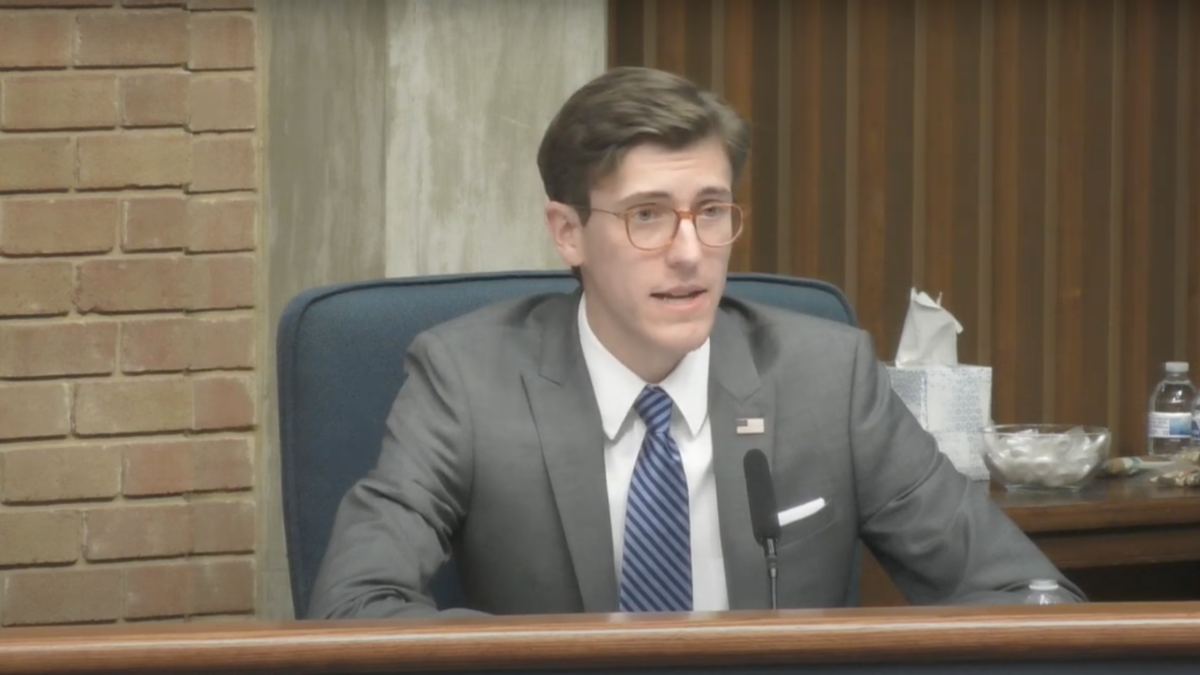On the issue of student loan reform, I am an equal opportunity extremist. On the one hand, I think academia is largely a giant con run by communist vultures who prey upon financially illiterate students in order to create worthless administrative jobs. For this crime, we should cancel existing student debts by raiding the endowments of those universities. Then we should ban student loans, defund public universities, and roast marshmallows over the burning contracts of every dean of kink inclusivity that made higher education unaffordable and worthless. On the other hand, if you took out $150,000 to study Feminist Paradigms in Post-Colonialist Patriarchies, you only have yourself to blame.
But that’s not what I want to fight about. What I do want to fight about is something certain student-loan-fight-abouters keep asserting, namely that any Christian who opposes President Biden’s attempt to “cancel” some student loans via executive order is a hypocrite, someone who is supposed to believe in forgiving debts but refuses to do so when it comes to the debts of people he doesn’t like.
Consider a few of these “gotcha” examples that have been parroted around social media in recent days:



It is true that the forgiveness of debts is a major theme in the Scriptures. According to the Law of Moses, every 50 years, the Israelites were supposed to celebrate a year of Jubilee, in which, among other things, all debts were canceled. In the Lord’s Prayer, Jesus implores us to forgive each other’s debts as God has forgiven our debts. Likewise, in Matthew 18, Jesus offers a parable where a king forgives an unfathomable debt that his servant owes him, only to reinstate that debt after the man refuses to forgive a fellow servant who owes him a few dollars by comparison.
These words and commands, of course, have a deeply spiritual point. The God who created you is owed your worship and obedience. But instead of giving to Him, through your transgressions, you took from Him. You took His love, His name, and His word, and defiled them. Instead of using the body, the mind, and the earthly treasures He gave you in order to serve your neighbor, you used those gifts to war against Him. To be a sinner is to be in God’s debt. And yours is a massive debt, one that you could never possibly pay off.
But in His mercy, God sent His only begotten Son to take that debt away. With His death and resurrection, Jesus Christ erased every debt that stood against you and filled your account with the treasure of His righteousness, the only thing that could make you worthy of eternal life.
This is why God commanded the Israelites to forgive all material debts during the year of Jubilee — because they belonged to the God who would one day forgive eternal debts in His Son. Likewise, Christ repeatedly commands us to forgive our neighbors’ debts (read: sins) because He is the God who took on human flesh to forgive ours.
Therefore, to understand the folly of the “Biden is being just like Jesus! DON’T YOU LOVE JESUS?” approach, consider three questions about student debt forgiveness and spiritual debt forgiveness:
Question 1: Who owes the debt?
Question 2: To whom is the debt owed?
Question 3: Who is paying the debt?
In the Christian universe, you are the one who racked up an unpayable bill through your sins. This is a debt you owe to God, and it is a debt you could never possibly pay off. But in His mercy, God Himself pays the debt you owe Him, using the currency of Christ’s precious blood to erase it. God is the one who gives, who suffers, who agonizes to remove the debt that burdens you. As the great hymn “O Dearest Jesus, What Law Hast Thou Broken” puts it, “what punishment so strange is suffered yonder! The Shepherd dies for sheep that loved to wander; the Master pays the debt His servants owe Him, who would not know Him.”
In the student loan forgiveness universe, things are quite different. You are still the one who owes the debt, but the debt is owed to essentially a combination of both the government (in the case of federal student loans) and the university.
Likewise, who is paying the debt in the Biden model? Not the one who is owed the debt. The universities are not returning the money that students effectively paid them through the middle man of student loans. Nor is the government paying the debt it is owed, because the government doesn’t really have its own money. It has your neighbor’s money, taken by force. Therefore, it is your neighbor who is paying the debt you owe to someone else entirely. The government is not “forgiving” or “erasing” debt but transferring it to someone who neither owes the money nor lent the money.
Unlike Christ, the government and the universities are not the ones suffering and giving up for the sake of the guilty party. They’re the ones profiting and taking at an innocent person’s expense. Perhaps that will benefit the innocent person in the long run, in the way that using tax dollars for police and libraries does, but that’s beside the point.
The Biden plan to relieve student debt may be an exercise in classism-scented theft, stealing the dollars of poor but fiscally responsible Americans to subsidize the frivolous life choices of reckless elites. It could also be a just and effective method of righting the wrongs universities and federal loan sharks committed against young Americans. (It’s definitely not that, but it could be, hypothetically.)
The plan could stimulate our economy and hit the reset button on the student loan program or it could incentivize universities to bury the next generation of college students under an even bigger mountain of debt, knowing the government will bail them out. (It’s certainly the second one.) The Biden plan may be foolish or it may be wise.
But whatever it is, it’s most certainly not “Christian.” It is not analogous to the atoning sacrifice of Jesus Christ, who refused to let you or anyone else but Himself pay the debt you owed. It’s not analogous to the love of the God Man who gave up everything to pay the debt of those who hated Him. Comparing the saving work of God’s Son to the government canceling student loans is not an apples-to-apples comparison. It’s not even an apples-to-oranges comparison. It’s an apples-to-fire-hydrants comparison.
If you liked that last illustration, please feel free to pay off my English major student loans. They’re not my fault.









